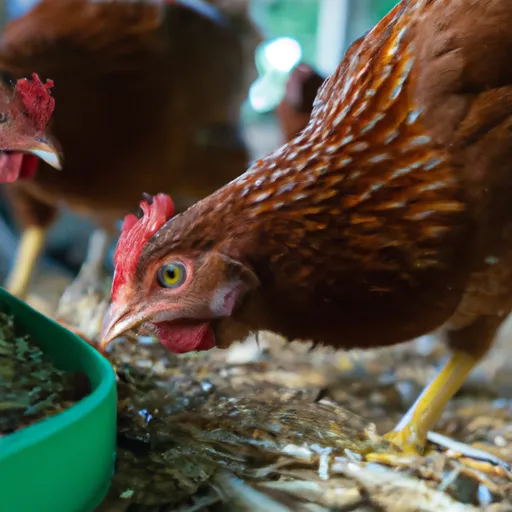Toxic Feed Ingredients That Could Be Killing Your Chickens
Chicken feed is the primary source of nutrition for chickens, and it’s essential to ensure that what they eat won’t harm them.
Unfortunately, many commercial feeds contain ingredients that can be toxic to poultry.
So, we will discuss some common toxins found in chicken feed, their signs of poisoning, preventative measures against toxicity, treatment options, and final thoughts on keeping your flock healthy.
Those Toxic Feed Ingredients
Commercial chicken feed often contains various additives such as antibiotics, growth hormones, and other chemicals to enhance performance and productivity.
While these substances may improve the birds’ weight gain or egg production, they could also have adverse effects on their health. Some of the most common toxins found in chicken feed include:
1. Mycotoxins – These are fungal toxins that contaminate grain crops like corn, wheat, and soybeans. They can cause a range of symptoms including liver damage, reduced appetite, and immune suppression.
2. Pesticides – These are chemicals used to control insects and other pests in agricultural fields. When consumed by chickens, they can lead to neurological disorders, digestive problems, and even death.
3. Heavy Metals – Exposure to heavy metals such as arsenic, mercury, and lead can result in organ failure, decreased egg production, and weakened immunity.
Common Toxins Found in Chicken Feed
One way to identify potential toxins in chicken feed is to look at its ingredient list.
Here are some common ones to watch out for:
1. Corn – This cereal grain is commonly used in chicken feed due to its high energy content. However, it can sometimes become moldy during storage, leading to mycotoxin formation.
See also The Mystique of the Ayam Cemani Chicken
2. Soybean Meal – Another popular ingredient in chicken feed, soybean meal provides protein and amino acids necessary for bird growth. But if not properly processed, it can contain high levels of phytates that limit nutrient absorption.
3. Cottonseed Meal – A byproduct of cotton processing, cottonseed meal is rich in protein but can also contain gossypol, a toxic compound that affects the heart, liver, and kidneys.
Signs of Poisoning in Chickens
It’s crucial to recognize the early warning signs of toxicity in chickens since prompt action can save lives.
Here are some indicators of poisoning you should watch out for:
1. Reduced Appetite – If your chickens stop eating or show little interest in food, it could signal illness or toxicity.
2. Weight Loss – Sudden weight loss without any apparent reason could indicate a serious problem.
3. Diarrhea – Loose stools or diarrhea are common signs of intestinal distress caused by toxins.
4. Labored Breathing – Difficulty breathing accompanied by open-mouthed breathing or increased respiratory rate could mean lung damage from toxins.
5. Muscle Twitches – Uncontrollable muscle twitches or tremors could indicate nervous system damage from exposure to certain poisons.
Preventative Measures Against Toxicity
The best way to protect your chickens from toxicity is to provide them with clean, fresh water and quality feed free of contaminants. Here are some additional steps you can take:
1. Buy High-Quality Feed – Look for reputable brands of chicken feed that use only non-GMO ingredients and avoid adding unnecessary fillers or preservatives.
2. Store Feed Properly – Keep feed stored in a dry place away from moisture, heat, and rodents to minimize the risk of spoilage and contamination.
See also The Most Common Chicken Predators: Identify and Protect Your Flock
3. Rotate Feed Sources – Mix up different sources of feed to reduce the likelihood of consuming tainted products.
4. Provide Clean Water – Ensure that your chickens always have access to clean drinking water to help flush out toxins.

Treatment for Poisoned Chickens
If you suspect your chickens have been exposed to toxins, here are some immediate actions you can take:
1. Remove Contaminated Food Sources – Immediately remove any suspected toxic feed or water sources to prevent further consumption.
2. Offer Supportive Care – Provide supportive care such as fluids, electrolytes, and vitamins to help alleviate symptoms until veterinary assistance arrives.
3. Contact a Veterinarian – Seek professional advice from an avian vet who specializes in treating poultry diseases.
Final Thoughts on the Subject
Keeping your chickens safe from toxins requires vigilance and attention to detail.
By following the above guidelines, you can help protect your flock from potential hazards lurking in their feed. Remember, prevention is key when it comes to maintaining optimal poultry health.
